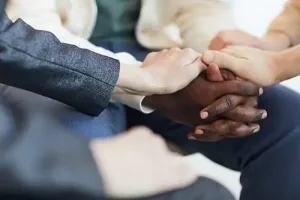
The call is always the same. Though patients come from different circumstances and have different struggles, the point is always I have to leave now. People complain about anything from the food, to the other patients, to something going on at home, to the quality of the sheets.
Since I’ve seen this call so many times, I know how to handle it. I always recommend that families accept the call, acknowledge their loved one’s concern, and push the rest of the conversation back to later in the day. I suggest saying something like, “Thanks for calling. This is very important, but can we talk about it this afternoon?”
It Will Change
One of the features of early sobriety is massive mood swings. Certainly by the hour and sometimes by the minute. A 9 am crisis may be forgotten by 5pm. At a good inpatient rehab, the staff is used to dealing with the emotional lability of their patients. Learning how to self-soothe and modulate one’s feelings is an important lesson in recovery. We all know that people who are actively using can have explosive tempers, may not know how to express their emotions, and are sometimes used to getting their way in everything.
Take it Easy
When the newly-recovering person makes that call for help, the family usually wants to jump in and save them. It’s truly part of a lesson that the person needs to learn. Regulating emotions, advocating for their needs, working within a system, processing with friends. These are all crucial, new ways of thinking for the person entering recovery. In early sobriety there will be many moods swings, and what’s problematic one moment may be fine a half an hour later. Either way, the individual is on their own journey and no longer needs to be rescued.
About Adam Banks
Adam Banks is a certified interventionist and the owner of Adam Banks Recovery. After receiving an MBA from the University of Chicago, Adam built a company acquired by United Health Care. His discipline and attention to detail comes from his former career as an airline pilot, holding an ATP, the FAA’s highest license.
Today, Adam is dedicated to helping others achieve long-term sobriety. His work has guided executives, pilots, and physicians on paths to recovery. Adam brings families together through a loving and inclusive approach.
Adam has authored four books on addiction. His recent work, Navigating Recovery Ground School: 12 Lessons to Help Families Navigate Recovery, educates families on the entire intervention process. He also offers a free video course for families considering an intervention for a loved one.
Adam is available for alcohol and drug intervention services in New York, Long Island, the Hamptons as well as nationally and internationally.




